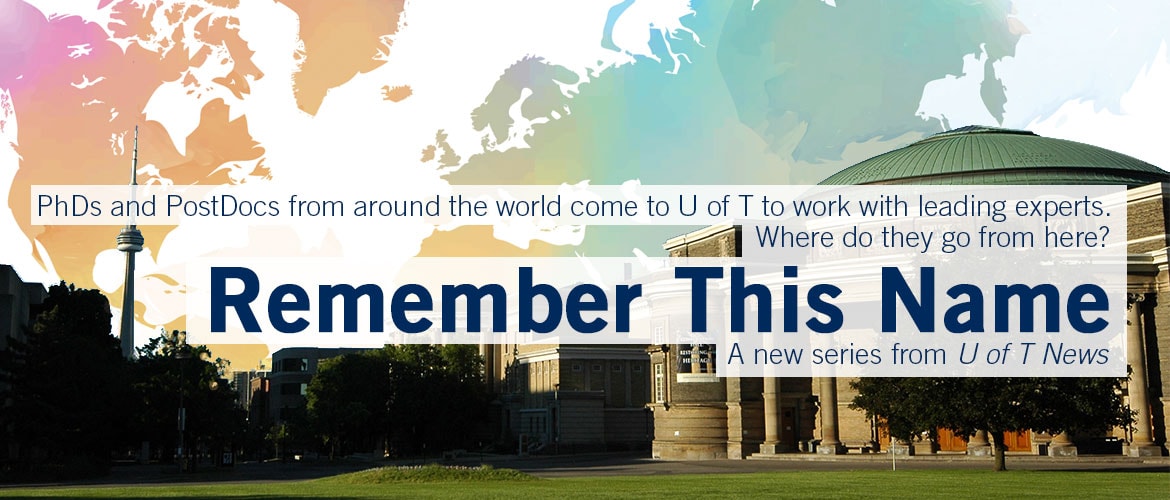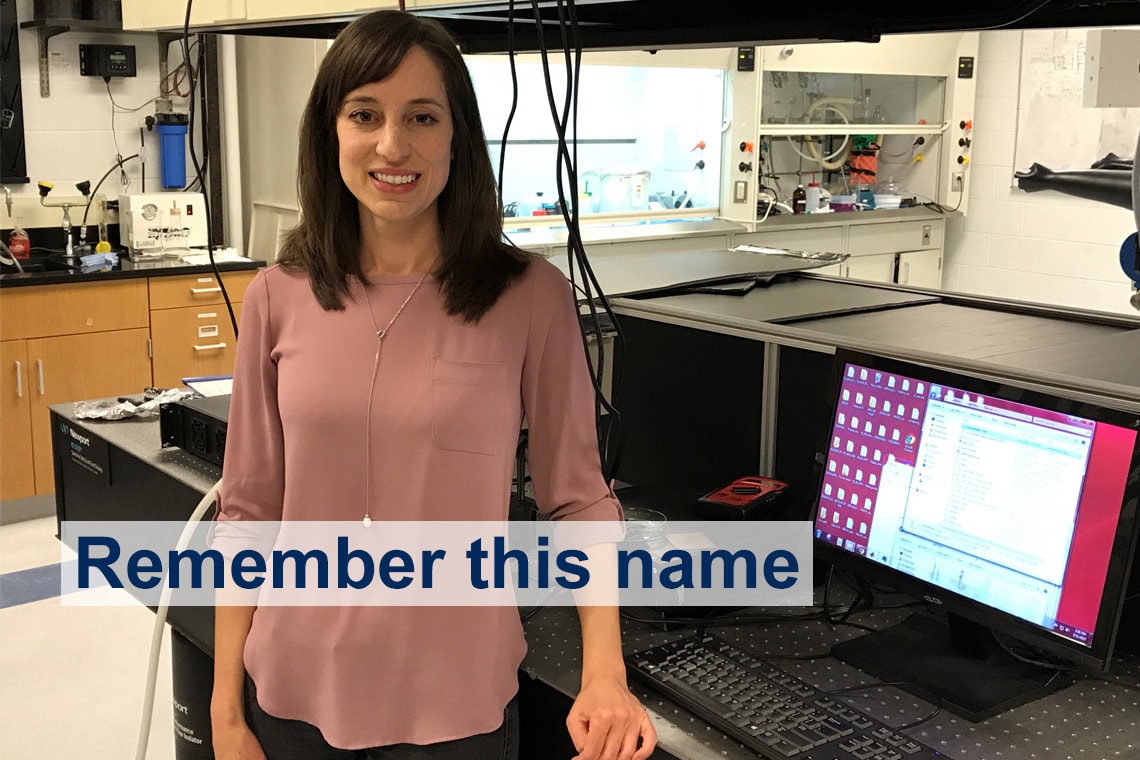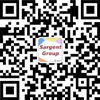Big things can come from tiny places – that’s what physicist Susanna Thon discovered as a post-doctoral researcher at the University of Toronto.
As a member of the Sargent Group, led by University Professor and Vice-President International Ted Sargent, she studied colloidal quantum dot solar cells – technology that uses nanomaterials to absorb solar energy.
“It can be cheaper to manufacture than traditional solar technology,” says Thon. “It’s also very flexible so it could be coated on many kinds of surfaces.”
She is now an assistant professor and leads her own lab at Johns Hopkins Whiting School of Engineering, where she continues her research on nanomaterials.
Thon is one of a new generation of thinkers transforming research across the globe. They come from all corners of the world to do their PhD or postdoctoral research at the University of Toronto, drawn by the chance to work with the leading experts in their fields.
Where do they go from here?
In the fifth instalment of a new series from U of T News, we turn the spotlight on Thon. Below, she talks about her time at U of T and the importance of keeping science international.
How did you find out about U of T and Ted Sargent’s lab?
Ted’s a really well-known guy in his field so at the end of my PhD, I knew that I wanted to transition to something more applied in the area of optical physics, and specifically I wanted to work on solar energy technology. I did a lot of reading of the scientific literature, and of course, Ted’s name comes up again and again. I had heard of U of T as a great research institution – a very large research institution – so it has a strong international profile. His research work really matched with my interests.
What were your biggest takeaways from your time at U of T?
Because of my academic work and research, I had the chance to mentor more junior PhD students and undergrads, and that was a great experience for me. I got a lot of exposure to a lot of experts in the field because Ted and the department are great about bringing in people who are leaders in those fields. I learned a lot about interdisciplinary research because, although Ted’s in the electrical and computer engineering department, he has many collaborations and uses techniques from many different fields, including physics, chemistry and materials science.
I also got to travel to the Canadian Light Source, which is a cyclotron – a particle accelerator that produces high-energy light beams in Saskatoon – to use that facility to do scattering measurements on our materials, and I had the opportunity to travel all over the world to conferences to give talks on our research. I have to say, it was a great experience – I love U of T, and I love Toronto.
What are you working on at Johns Hopkins?
I started at Johns Hopkins in late 2013 as an assistant professor, and I’m in the electrical and computer engineering department here. In my research program, I have four PhD students at the moment and a bunch of undergrads in my lab. We’ve continued to work in the area of nanomaterials for solar energy and other optical electronics as well.
What do you think is the value of researching or studying outside of your home country?
It’s useful to experience different cultures because science and engineering today are international – there’s no getting around that. There’s a real value in seeing how other systems work – in terms of how graduate students are funded, how research is funded, as well as how the large collaborations that are necessary to do science these days work in different countries. It’s partially so that students can take that knowledge back to their home countries and also to get exposure to different kinds of techniques. Personally, I enjoy going to a different place, learning new things, and Toronto specifically is great because it’s such an international city. It’s also a big city so there’s great food, great public infrastructure – I had a great time here.
What advice would you give students who are graduating this year?
The political landscape today is much more complicated than when I graduated in terms of doing science either internationally or otherwise so I think it’s important to keep those connections as open as we can. Science is an international endeavour today, and if we want it to continue to thrive, we have to continue to have that be the case – we need resources from all over the world to do the best science and engineering.
It’s important to be open-minded. It’s important to keep reading, keep learning throughout your career. For me, looking back to when I was graduating as an undergrad with a degree in physics, I kept seeking new material. I kept reading – not just physics and science – but engineering and politics. All fields today are related. I’m constantly applying for government grants so I have to know about the current political climate, what the most applications are going to be, where funding is going to come from – that means keeping engaged in the political process.








